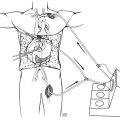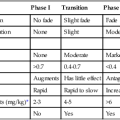
Have you noticed more headlines about aging and geriatric care recently? You’re not alone. With an aging global population, the field of geriatric care is evolving rapidly. This blog explores how geriatricians and gerontologists improve the lives of older adults.
By the end, you’ll understand their roles. You’ll also see how they work together and the impact they have on our aging society.
Who Are Geriatricians?
Geriatricians are medical doctors who specialize in the care of older adults. They undergo much training. It is to manage the complex health issues of aging.
These doctors focus on conditions like hypertension, diabetes, and arthritis. They are skilled at managing many medications. They understand how these drugs interact in older bodies.
Geriatricians often work in hospitals, clinics, and nursing homes. They provide personalized care plans. The plans aim to improve their patients’ lives.
Who Are Gerontologists?
Unlike geriatricians, gerontologists are not medical doctors. Instead, they study the aging process itself. Gerontologists come from various backgrounds, including sociology, psychology, and public health.
Their work involves researching the social, psychological, and biological aspects of aging. They aim to understand how aging affects individuals and societies.
Gerontologists often work in academic settings, think tanks and governmental agencies. Their research helps shape policies and programs that benefit older adults.
The Collaboration Between Geriatricians and Gerontologists
While geriatricians and gerontologists have different roles, their collaboration is vital. They provide complete care. It addresses both the medical and social aspects of aging.
For example, a geriatrician might prescribe medication for an elderly patient’s arthritis. Meanwhile, a gerontologist could assess the patient’s home. They would recommend changes to make daily activities easier.
Advances in Medical Technology
Medical technology has significantly affected geriatric care. Innovations like:
- telemedicine
- wearable devices
- electronic health records
This has made it easier to watch and control the health of older adults. Telemedicine allows geriatricians to consult with patients remotely.
Wearable devices can track vital signs and alert healthcare providers to any irregularities. This real-time monitoring helps in making timely interventions.
The Role of Preventative Care
Preventative care is a key aspect of modern geriatric care. It aims to prevent illnesses. It does this rather than treating them after they develop.
This includes regular screenings for conditions like osteoporosis and heart disease.
Geriatricians often work closely with patients to develop personalized preventative care plans. These plans can include exercise routines, dietary changes, and mental health support.
Addressing Mental Health in Older Adults
Geriatricians are trained to recognize and treat these conditions. This can involve medication, therapy, or a combination of both.
Gerontologists also play a role in researching the psychological aspects of aging. Their findings help develop better mental health programs and interventions for older adults.
The Impact of Social Factors
Gerontologists study these social factors to understand their impact on aging. Their research helps in creating programs that address these issues.
Geriatricians can then use this information to provide more holistic senior care. For example, they might recommend community programs. These programs offer social activities and support for older adults.
If you are looking for preventive care, consider primary care physicians Lakewood Ranch FL.
Understanding the Differences Between Geriatrician vs Gerontologist
Geriatric care is an evolving field. It offers promising prospects for the health and well-being of older adults. By understanding both roles, we can better appreciate their full care.
Their work makes sure that older adults get holistic care. It addresses both medical and social needs. Despite the challenges. technology and prevention will revolutionize elder care.
For more helpful tips, check out the rest of our site today.




